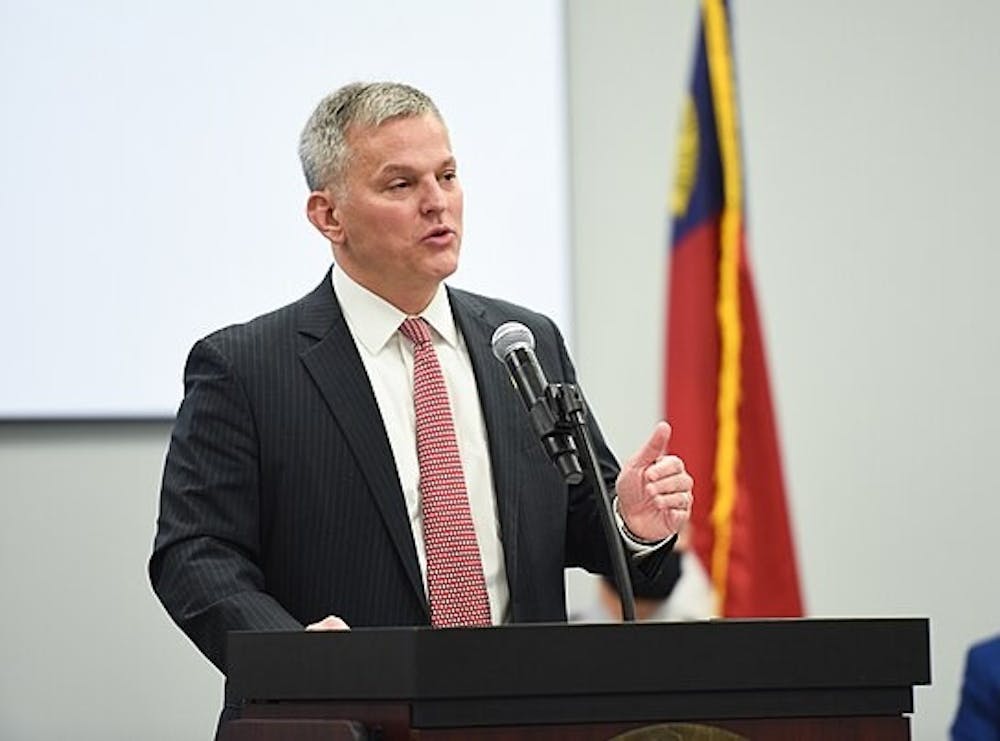N.C. Gov. Josh Stein released his budget proposal for the 2025-26 and 2026-27 fiscal years March 19, placing a particular focus on public education and health.
The proposed budget, amounting to $33.65 billion for the first year and $34.35 billion for the second, also includes efforts to strengthen the workforce, improve spending efficiency and effectiveness, and lower living costs for families. The proposal will likely face challenges in the Republican-controlled N.C. General Assembly.
“My budget is balanced and puts kids and families — their job opportunities, their education, their wallets, their health and their safety — first,” Stein said in a press release announcing the proposal.
Public education
“Investing in North Carolina’s children is an investment in the state’s future,” Stein’s office wrote in the press release.
Stein plans to raise public education spending by more than $876 million in FY 2025-26 and $1.2 billion in FY 2026-27. Average teacher pay would see a 10.6% increase, with starting teacher salaries raised to “the highest in the southeast” — at least $53,000, state and local supplements included, by the second year.
The N.C. public school system currently serves approximately 1.5 million K-12 students, including 115 public school districts and over 200 charter schools. Stein’s funding plans would increase the base budget requirements for public instruction by 8.3%.
Stein’s budget also allocates $10 million each fiscal year for reinstating master’s pay for teachers. According to the proposal, teachers and instructional support personnel would each receive $300 as a tax-deductible stipend for necessary school supplies.
Public health
The governor’s press release stated that the budget “strengthens the health of all North Carolinians” by making health care more affordable, supporting rural clinics, aiding those struggling with substance use disorder and ensuring clean air and water across the state.
Stein’s budget includes a plan to invest in student health by hiring more public school nurses, counselors and social workers, as well as providing free lunch. Roughly 1.2 million North Carolinians are considered food insecure by the state, including one in six children. Additionally, only half of all children with mental health disorders are receiving “necessary care,” and only half of the state’s counties have child or adolescent psychiatrists, according to the proposal.
Under the Stein proposal, the N.C. Department of Health and Human Services would see a 16.8% increase from its base budget requirements for central management and support in FY 2025-26. To address continued labor shortages in the health care sector, Stein plans to invest $5 million to improve recruitment efforts of direct support professionals and allocate $20 million each year to increase the rates of primary care and OB-GYN providers in the N.C. Medicaid program.
The plan also appropriates $1.3 million in recurring funds to support new roles to address complaints, clear inspection backlogs and “process expedited licensure applications for residential mental health facilities across the state.” Independent colleges and universities in North Carolina will be provided $10 million to increase the number of prospective health care professionals.
A further $208.5 million would be set aside to fund the construction of three rural care centers and a new children’s hospital in the Triangle Area. The proposal emphasized supporting regions of the state devastated by Hurricane Helene.
Republican opposition
Stein’s fiscal plans have run into Republican opposition — particularly from Phil Berger, state senate president pro tempore, and State House Speaker Destin Hall — as plans to fund the budget would involve freezing income tax cuts. North Carolina’s individual income tax rate currently sits at 4.25%, which Republicans are looking to cut to 3.99% in 2026.
Republicans have also declared Stein’s recommendation for a $4 billion public school bond dead on arrival, with Hall pointing to high interest rates. The bond is expected to raise money for modernizing “outdated” public school buildings, chipping away at an identified $13 billion in school construction needs. Simultaneously, Stein is looking to scale back existing private school vouchers, currently available to N.C. families at all income levels.
Fiscal plans will likely be a continued source of contention among Democrats and Republicans in the state, as Republicans hold majorities in both chambers of the N.C. General Assembly. Although Stein can veto a Republican-drafted budget passed along party lines, the legislature may override the veto if they flip one Democratic vote in the state House and all Republicans in both chambers vote to override.
Get The Chronicle straight to your inbox
Sign up for our weekly newsletter. Cancel at any time.
Addison Smith is a Trinity first-year and a staff reporter for the news department.

